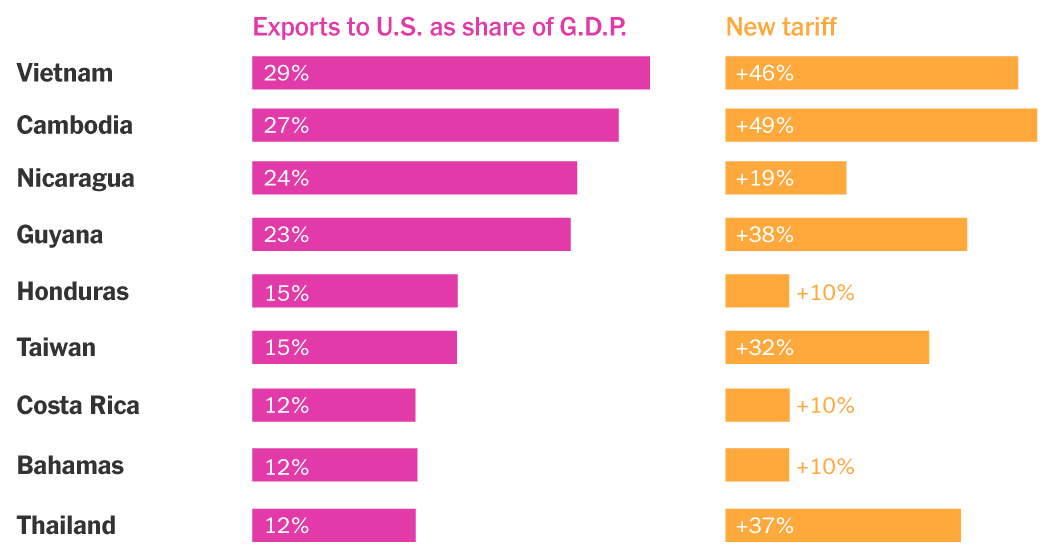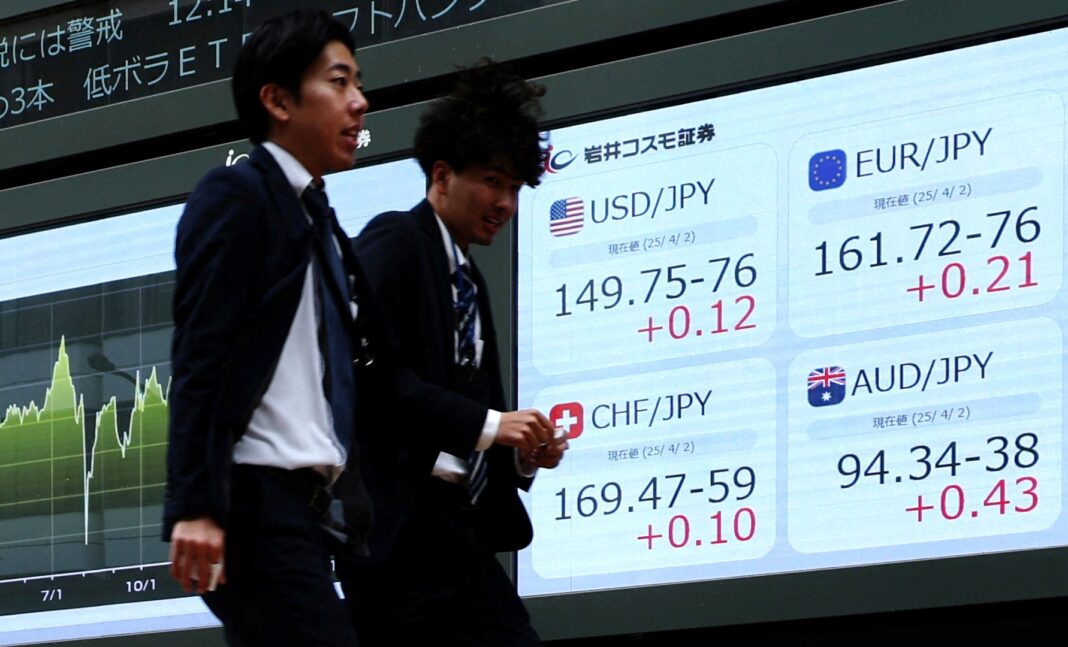These countries are some of the most vulnerable to Washington’s sweeping new tariffs. Their economies are deeply reliant on selling goods to the United States, and many of them were hit with especially steep taxes.
Many of the worst-hit countries are close American allies and partners. In Southeast Asia, countries like Vietnam, Thailand and Cambodia have for years worked to turn themselves into alternatives to China for factories making the bags, electronics, shoes and auto parts that eventually end up in the United States. Now, they will face some of the most punishing tariffs.
A second group of trading partners facing high tariffs includes huge exporters like China, Japan, India and the European Union. Their overall economies are less exposed to changes in American exports, but many of them still face large economic risks.
These figures show the increase in duties announced by the Trump administration on Wednesday. The United States had already imposed some tariffs on many countries and sectors, but typically at lower levels.
Canada and Mexico, which both rely on trade with the United States, were exempted from the new tariffs announced on Wednesday. Both countries will remain subject to the 25 percent tariff that President Trump imposed on many of their products last month in addition to separate U.S. tariffs on global steel, aluminum and cars. The car tariffs went into effect on Thursday.
Mr. Trump imposed a minimum 10 percent tariff on almost every trading partner that did not get a higher rate.
The countries that have avoided the highest tariffs may still face extraordinary economic pressure. Experts warned the tariffs could destabilize the entire world economy. And European companies may struggle to compete with a flood of low-cost Chinese imports redirected from the United States.
“Even the countries that are not facing high tariffs are going to be in trouble,” said Jayati Ghosh, an economist at the University of Massachusetts Amherst. It will disrupt supply chains and inject a huge dose of uncertainty into the global economy, she said, “so you will get much lower investment, and lower economic activity, and lower employment.”


